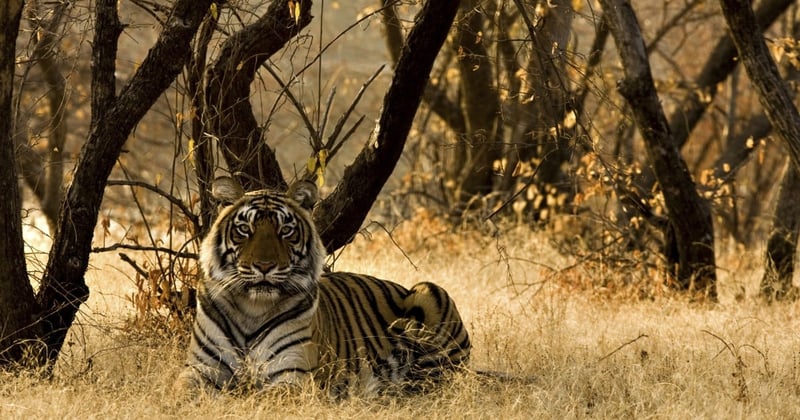
Oxford scientists’ call to creative minds – Can you think for tigers?
News
Today, along with the University of Oxford’s Wildlife Conservation Research Unit (WildCRU), Department of Zoology we have launched a competition calling for innovative ideas to help protect tigers, keeping them in the wild where they belong.
In order to protect the world’s remaining tigers from poaching for illegal trade, habitat loss and conflict with people, researchers and rangers use a range of methods to locate, track, monitor and study them. The cruelty associated with illegal poaching and killing of tigers must be stopped. They are also at risk of extinction: if we don’t keep an eye on them, we’ll lose one of the world’s most iconic animals forever.
The Think for Tigers competition, implemented in collaboration with WildCRU aims to improve existing methods, or identify new ideas so that they can be better monitored, studied and ultimately protected. A panel of judges, from World Animal Protection and the University of Oxford's WildCRU, Department of Zoology and Department of Computer Science will use their scientific knowledge and animal welfare expertise to select a winning idea that is innovative, humane and effective.
“Tigers are in trouble. Researchers and rangers are working around the clock to protect them but the threats are increasing and time is running out,” says Professor David Macdonald, WildCRU Director.
We hope to encourage creative thinking in animal protection and conservation science by attracting applications from not only wildlife biologists, but also from people from all academic disciplines such as design, engineering and artificial intelligence.
How might we better monitor the remaining wild tigers?
If you want to protect tigers from cruelty and extinction and you’ve got the creative mind to think up an aid to the solution, you can enter. However, you do need to be affiliated with a college, university; non-governmental or governmental organisation working in the field of nature conservation; intergovernmental organisation or with creative-industries.
“Science is a way of thinking and we are asking to all creative-minds and problem-solvers from all academic disciplines to think for tigers,” says Dr Emre Can, Lead Scientist for the initiative.
Dr Neil D’Cruze, our World Animal Protection Head of Research, adds, “A major problem is that tigers are being killed for their skins, claws and bones. We need real innovation if we are going be successful in our mission to stop this cruel illegal activity and save these incredible animals from extinction.”
A major problem is that tigers are being killed for their skins, claws and bones. We need real innovation if we are going be successful in our mission to stop this cruel illegal activity.